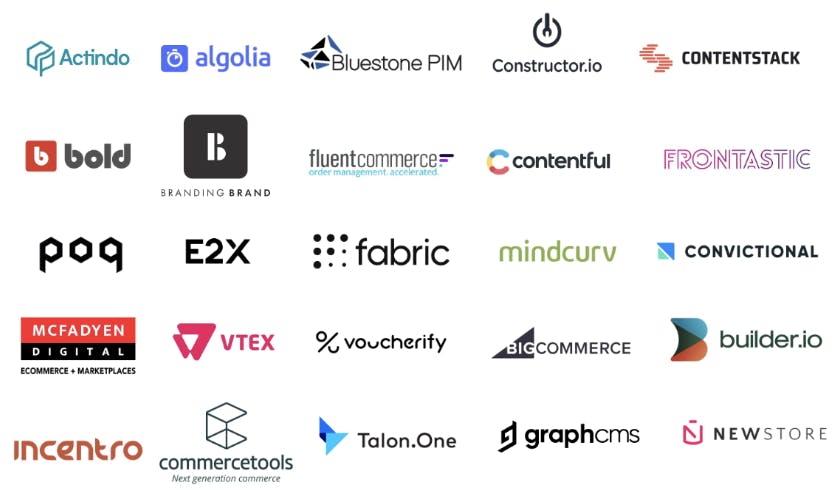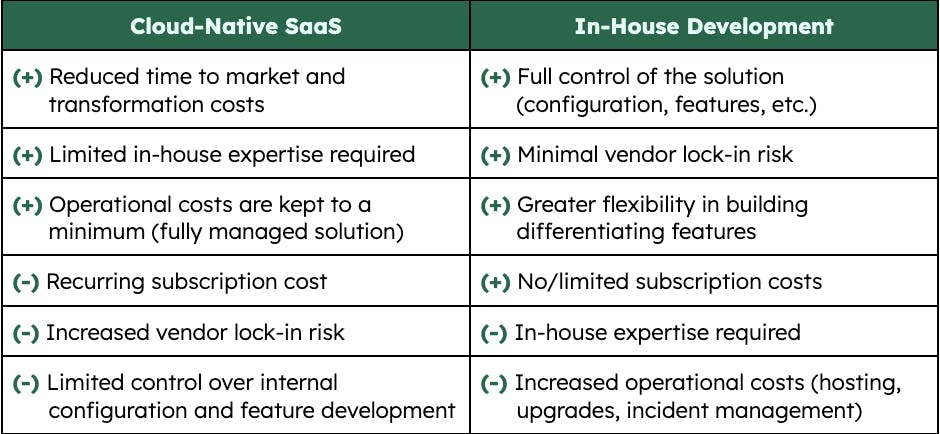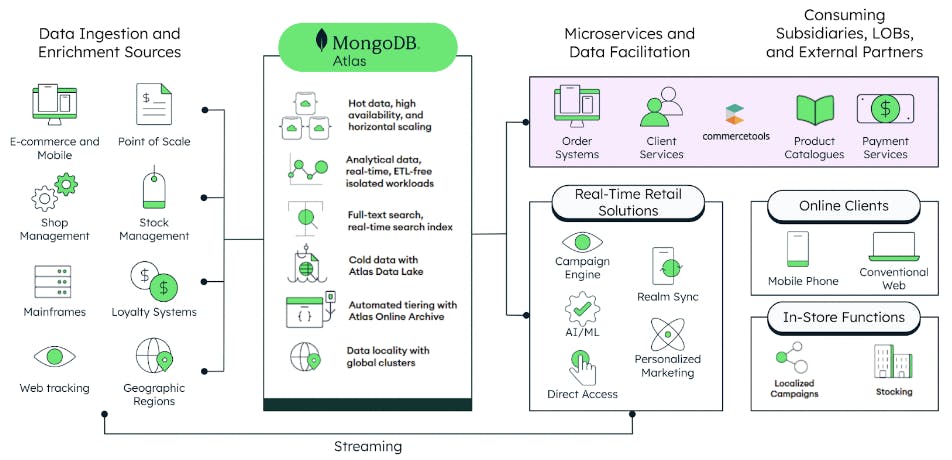MACH Aligned for Retail: Cloud-Native SaaS
September 22, 2022 | Updated: March 14, 2025
MongoDB is an active member of the MACH Alliance, a non-profit cooperation of technology companies fostering the adoption of composable architecture principles promoting agility and innovation.
Each letter in the MACH acronym corresponds to a different concept that should be leveraged when modernizing heritage solutions and creating brand-new experiences. MACH stands for Microservices, API-first, Cloud-native SaaS, and Headless. In previous articles in this series, we explored the importance of Microservices and the API-first approach.
Here, we will focus on the third principle championed by the alliance: Cloud-native SaaS. Let’s dive in.
What is cloud-native SaaS?
Cloud-native SaaS solutions are vendor-managed applications developed in and for the cloud, and leveraging all the capabilities the cloud has to offer, such as fully managed hosting, built-in security, auto-scaling, cross-regional deployment, automatic updates, built-in analytics, and more.
Why is cloud-native SaaS important for retail?
Retailers are pressed to transform their digital offerings to meet rapidly shifting consumer needs and remain competitive. Traditionally, this means establishing areas of improvement for your systems and instructing your development teams to refactor components to introduce new capabilities (e.g., analytics engines for personalization or mobile app support) or to streamline architectures to make them easier to maintain (e.g., moving from monolith to microservices). These approaches can yield good results but require a substantial investment in time, budget, and internal technical knowledge to implement.
Now, retailers have an alternative tool at their disposal: Cloud-native SaaS applications. These solutions are readily available off-the-shelf and require minimal configuration and development effort. Adopting them as part of your technology stack can accelerate the transformation and time to market of new features, while not requiring specific in-house technical expertise.
Many cloud-native SaaS solutions focused on retail use cases are available (see Figure 1), including Vue Storefront, which provides a front-end presentation layer for ecommerce, and Amplience, which enables retailers to customize their digital experiences.

At the same time, in-house development should not be totally discarded, and you should aim to strike the right balance between the two options based on your objectives. Figure 2 shows pros and cons of the two approaches:

MongoDB is a great fit for cloud-native SaaS applications
MongoDB’s product suite is cloud-native by design and is a great fit if your organization is adopting this principle, whether you prefer to run your database on-premises, leveraging MongoDB Community and Enterprise Advanced, or as SaaS with MongoDB Atlas.
MongoDB Atlas, our modern database, is particularly suitable in this context. It supports the three major cloud providers (AWS, GCP, Azure) and leverages the cloud platforms’ features to achieve cloud-native principles and design:
-
Auto-deployment & auto-healing: DB clusters are provisioned, set up, and healed automatically, reducing operational and DBA efforts.
-
Automatically scalable: Built-in auto-scaling capabilities enable the database RAM, CPU, and storage to scale up or down depending on traffic and data volume. A MongoDB Serverless instance allows abstracting the infrastructure even further, by paying only for the resources you need.
-
Globally distributed: The global nature of the retail industry requires data to be efficiently distributed to ensure high availability and compliance with data privacy regulations, such as GDPR, while implementing strict privacy controls. MongoDB Atlas leverages the flexibility of the cloud with its replica set architecture and multi-cloud support, meaning that data can be easily distributed to meet complex requirements
-
Secure from the start: Network isolation, encryption, and granular auditing capabilities ensure data is only accessible to authorized individuals, thereby maintaining confidentiality.
-
Always up to date: Security patches and minor upgrades are performed automatically with no intervention required from your team. Major releases can be integrated effortlessly, without modifying the underlying OS or working with package files.
-
Monitorable and reliable: MongoDB Atlas distributes a set of utilities that provides real-time reporting of database activities to monitor and improve slow queries, visualize data traffic, and more. Backups are also fully managed, ensuring data integrity.
Independent Software Vendors (ISVs) increasingly rely on capabilities like these to build cloud-native SaaS applications addressing retail use cases. For example, Commercetools offers a fully managed ecommerce platform underpinned by MongoDB Atlas (see Figure 3). Their end-to-end solution provides retailers with the tools to transform their ecommerce capabilities in a matter of days, instead of building a solution in-house. Commercetools is also a MACH Alliance member, fully embracing composable architecture paradigms explored in this series.
Adopting Commercetools as your ecommerce platform of choice lets you automatically scale your ecommerce as traffic increases, and it integrates with many third-party systems, ranging from payment platforms to front-end solutions. Additionally, its headless nature and strong API layer allow your front-end to be adapted based on your brands, currencies, and geographies.
Commercetools runs on and natively ingests data from MongoDB. Leveraging MongoDB for your other home-grown applications means that you can standardize your data estate, while taking advantage of the many capabilities that the MongoDB data platform has to offer. The same principles can be applied to other SaaS solutions running on MongoDB.

MongoDB supports your home-grown applications
MongoDB offers a powerful modern database, providing the tools to leverage composable architecture patterns and build differentiating experiences in-house. The same benefits of MongoDB’s cloud-native architecture explored earlier are also applicable in this context and are leveraged by many retailers globally, such as Conrad Electronics, running their B2B ecommerce platform on MongoDB Atlas.
Summary
Cloud-native principles are an essential component of modern systems and applications. They support ISVs in developing powerful SaaS applications and can be leveraged to build proprietary systems in-house. In both scenarios, MongoDB is strongly positioned to deliver on the cloud-native capabilities that should be expected from a modern data platform.
Thank you to Ainhoa Múgica and Karolina Ruiz Rogelj for their contributions to this post.
Stay tuned for our final blog of this series on Headless and check out our previous blogs on Microservices and API-first.